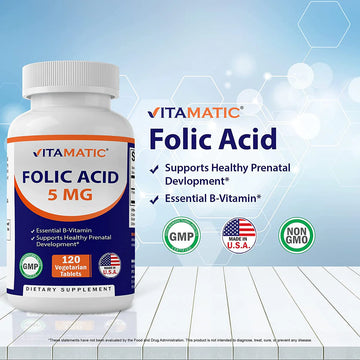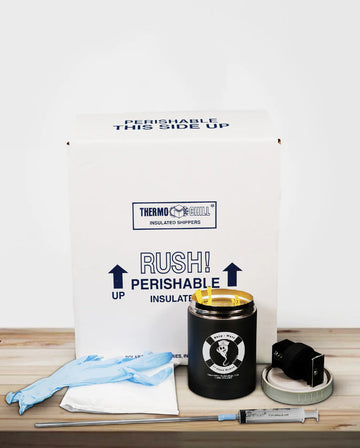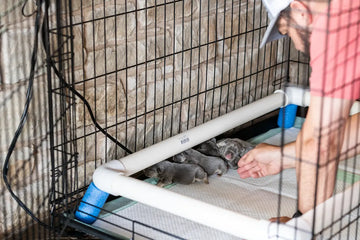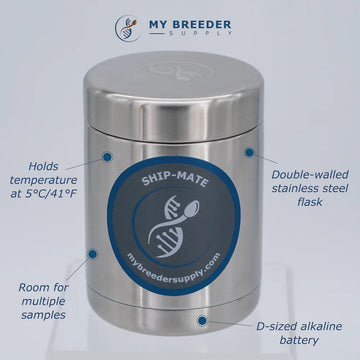
In the realm of pet health and nutrition, folic acid is a nutrient that often takes a backseat to more commonly discussed vitamins and minerals. However, its importance should not be underestimated.
Folic acid, also known as vitamin B9 or folate, plays a crucial role in maintaining the well-being of our canine companions.
In this article, we'll explore the myriad benefits of folic acid for dogs and why it should be an essential component of their diet.
What Is Folic Acid?
Folic acid is a water-soluble B-vitamin that is vital for various bodily functions in dogs, just as it is in humans. It's involved in DNA synthesis, cell growth, and the production of red blood cells.
While dogs can synthesize some folic acid internally, they still require it from their diet for optimal health.
The Role of Folic Acid in Canine Health
1. DNA Repair and Synthesis
Folic acid plays a critical role in repairing and synthesizing DNA. This process is essential for the growth and maintenance of healthy cells, which is crucial for your dog's overall health.
2. Red Blood Cell Formation
Folic acid is integral to the production of red blood cells. Adequate levels of folic acid can help prevent anemia in dogs, ensuring they have enough oxygen-carrying cells to stay energetic and healthy.
3. Cell Division
Cell division is a fundamental process in a dog's body. Folic acid aids in this process, helping cells divide and multiply correctly, which is essential for tissue repair and overall growth.
4. Prevention of Birth Defects
In pregnant dogs, a deficiency in folic acid can lead to birth defects in puppies. Ensuring pregnant dogs have an ample supply of folic acid is vital for the healthy development of their offspring.
Sources of Folic Acid for Dogs

1. Commercial Dog Food
Many high-quality commercial dog foods are formulated to meet dogs' nutritional needs, including folic acid. Check the label for ingredients like "folate" or "folic acid" to ensure it's included.
2. Homemade Diets
If you prepare homemade meals for your dog, consult with a veterinarian to ensure your recipes provide the right amount of folic acid. Incorporate ingredients like liver, leafy greens, and legumes, which are rich in folate.
3. Folic Acid Supplements
In some cases, your veterinarian may recommend folic acid supplements for your dog, especially if they have a specific health condition that requires additional folate.
Dosage and Considerations
Determining the right dosage of folic acid for your dog can be complex, as it depends on factors like age, size, and health status. Always consult your veterinarian before adding supplements to your dog's diet to ensure you're providing the appropriate amount.
Conclusion
Folic acid may not be as famous as some other vitamins, but its significance in your dog's health cannot be overstated. From DNA repair to red blood cell formation and the prevention of birth defects, it plays a crucial role. Ensure your furry friend receives the necessary amount of folic acid through their diet or supplements, under the guidance of a veterinarian, to support their overall well-being.
FAQs on Folic Acid For Dogs
Can I give my dog human folic acid supplements?
It's not recommended to give your dog human folic acid supplements without consulting a veterinarian. The dosage and formulation may not be suitable for canine physiology.
What are the signs of a folic acid deficiency in dogs?
Signs of a folic acid deficiency in dogs may include anemia, lethargy, poor coat condition, and a decreased appetite. If you suspect your dog has a deficiency, seek veterinary advice.
Are there any side effects of too much folic acid for dogs?
Excessive folic acid intake can lead to health issues. It's essential to follow your veterinarian's guidance on supplementation to avoid potential side effects.
Can folic acid supplements help with my dog's skin issues?
Folic acid supplements can contribute to overall skin health in dogs, but specific skin issues should be addressed by a veterinarian for a proper diagnosis and treatment plan.
Is it possible for a dog to get too much folic acid from their diet?
While it's rare for a dog to get excessive folic acid from their diet alone, it's essential to monitor their overall nutrient intake. Consult with your veterinarian if you have concerns about your dog's diet.




